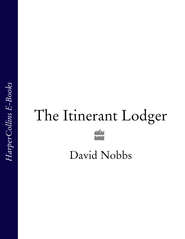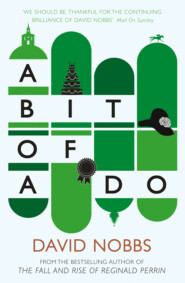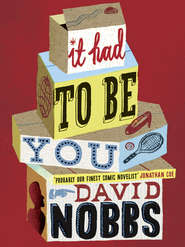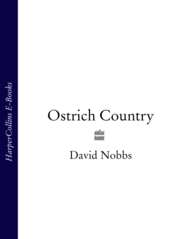По всем вопросам обращайтесь на: info@litportal.ru
(©) 2003-2025.
✖
A Piece of the Sky is Missing
Настройки чтения
Размер шрифта
Высота строк
Поля
‘Surprised?’ he said.
‘Perhaps I’m rather surprised every time I see you again.’
So was he. But she was nice and peaceful to be with, and this time she was beautiful and it would be all right. They had only made love once and her ardency had taken him aback and afterwards he had wished that they hadn’t. It was messy and grotesque. He had left her at ten-twenty and drunk five whiskies rapidly in a pub round the corner. On the tube he had been rude to an Italian tourist, who had shrugged benevolently. He had picked up a milk bottle and lobbed it through the window of the Blessington Pet Shop. Fined £5. Luckily no mention of it in the papers. He had gone up to Doreen and Brenda’s. Michael had been there, and a boy friend of Brenda’s. They had all drunk cocoa, and he had been very rude to Michael.
He sat on the floor and kissed her knees. There was a ladder in the right stocking. He put his little finger in and ran it along her flesh.
‘This is excellent sherry,’ he said.
He could feel her gritting her teeth with desire. He unrolled the stockings and began to kiss her legs and feet. Her legs had blue veins in them but the skin was smooth. He said nothing. He could feel the tension even in her feet. On the sofa was an author’s manuscript. The window was open. She bent down and kissed the top of his head.
He stood up and looked down at her in her chair. She also stood up. She was almost as tall as he was, and her slight smooth lips were wet.
‘I love you,’ he said.
She shook her head ever so slightly. He kissed her for a long time, and then he undressed her and carried her into the tiny bedroom. When he touched her breasts she groaned as if the pleasure was too great. They made love quickly and violently, a rhythm that suited them both, and her groans were like the cries of a tortured woman. Afterwards he felt relaxed and happy and grateful. The sun fell slowly behind the curtains as they talked. She talked about her father. Her mother had died when she was two, and her father had married again, but the spark had gone out of him. He was a bank manager in Bristol. She loved him with the same compassionate love she seemed to feel for all the world.
He asked her why she wasn’t married. She said she was much too particular, rather too cowardly, slightly too intense and not quite attractive enough. He demurred. She insisted. He changed the subject. They discussed places they would go to and things they would do – not that places and things meant much to her, except as experiences shared with loved ones.
Again he entered her and this time it was slower and gentler and more deeply satisfying. And afterwards he felt sated but contented, and he knew that her desire remained and he would never be able to satisfy her.
He was hungry. They dressed and had more sherry. She wore black trousers, and a check shirt. They ate the left-over bits of a chicken and there was a little cucumber and plenty of bread. After that there was red Cheshire and Edam and a pot of her excellent coffee. They played Scrabble and he kept making indecent words. It was his way of stimulating himself for what was to come.
He needn’t have worried. His desire responded to hers and they made love again, and again it was good, but this time he felt too sleepy to say that he loved her. He just let his fingers touch her thighs as he slid into a deep and happy sleep, vaguely conscious that she was rubbing herself gently against his body and clenching her teeth in excitement.
Then it was eight thirty-five and they were both going to be late for work. The sun was shining again, thrushes were singing, he shaved with Sonia’s razor, and she hardly spoke.
‘See you tonight,’ he said.
June, 1960. His first trip abroad for Cadman and Bentwhistle to sell a new high speed drill to a French firm. The drill was supposedly capable of distinguishing between different kinds of rock and soil. The French firm was supposedly capable of building channel tunnels and major tunnels under the Alps. Robert was supposedly capable of winning the deal in the face of German and French opposition. It was an important transaction. Tadman-Evans wished him luck.
‘We’ve every confidence in you, Bellamy,’ he said.
‘Thank you.’
‘It’s pity you’ve got to do such an important job on your first trip abroad, but there it is. There’s no-one else available,’ said Tadman-Evans.
Tadman-Evans warned him that the French were all extremely clever, extremely cunning and extremely arrogant. Robert’s worry as the plane descended towards Orly wasn’t the French, but his French. It was the schoolboy stuff, and rusty at that. He’d meant to brush it up, but somehow he hadn’t got round to it.
A car was waiting for him at the airport, and this drove him to the site of a great road building scheme on the southern edge of Paris. There, at the site office, among mounds of dry earth and dust, he met M. Bonnard.
‘Sir John tells me how well you speak French. That is unusual, for an Englishman,’ said M. Bonnard.
‘He’s exaggerating,’ said Robert.
‘But I am afraid you will have no chance to speak it. I insist on speaking English. It is my little vanity. You aren’t minding too much, I hope?’
‘No. I don’t mind.’
‘Good. Now, we shall examine the machine at two. But first, lunch.’
They lunched in a small, unprepossessing restaurant, in an untidy, dusty suburb, all cobbled cul-de-sacs and railway embankments. The food was excellent. Robert immediately found himself much more confident, and able to work much better, away from the petty snobberies of Cadman and Bentwhistle. If there were similar petty snobberies in Europe he was insensitive to the nuances and failed to pick them up. He could function in a larger, more generous sphere here. He could be a shining example of tact and diplomacy, all the more impressive because it came from an Englishman. He treated M. Bonnard on the assumption that he was clever but neither arrogant nor cunning. They got on well. Robert expounded on the British debt to European culture, and M. Bonnard showed him photographs of his two very Americanized young boys. Robert essayed some tart criticisms of British insularity, and M. Bonnard had some scathing comments to make about the system of rubbish clearing employed in the western suburbs of Paris. Robert made a frank summary of the inferior taste of the British to the French bourgeoisie, and M. Bonnard invited him to dinner to see his house and rookery. Robert was treated to a concise history of French landscape gardening, and then they returned to the site, affability personified, and the afternoon’s work began.
They made steady progress. The French were impressed by the drill and by Robert’s knowledge of it. He was able to ring their agent, M. Phillipe, and tell him that things were going well. M. Phillipe apologized for having been unavailable during the day, and suggested that they met after Robert’s dinner party for a little drink, to get to know each other.
In the evening Robert went back to M. Bonnard’s stark, white, modern house, decorated throughout with flimsy, spiky objects which he hated. He examined, and expressed profound admiration for, the rookery, which turned out to be a very formal, very spiky, very ugly rockery.
The dinner was delicious. He got rather drunk. The two boys were incredibly polite and only spoke when spoken to. M. Bonnard asked if there were many rookeries in England. Robert replied that there were some, but not enough. The English showed a distressing preference for gardens with enormous numbers of plants grown higgledy-piggledy. M. Bonnard wrote down ‘higgledy-piggledy’ in a notebook. Mme Bonnard asked Robert if he had ever met Peter Townsend. He had to admit that he had never had that pleasure. We lacked the severe logic that inspired French horticulture, he added, with the relentless self-denigration of the true patriot. We were not as cultured as the French. London had nothing to compare with the elegance and unity of Paris. Mme Bonnard agreed, but pointed out that the French had nothing to compare with Marks and Spencer’s. And was it true that Prince Charles was by nature artistic, poor boy? Robert confessed to a lack of intimate knowledge of the tastes and interests of the young prince, and compared the gardens of Buckingham Palace to those of Versailles, to the decided advantage of the latter.
‘I have been reading some years back a very fine book about your famous landscape gardener, Herbaceous Brown. Did Herbaceous Brown not build rookeries?’ said M. Bonnard.
Robert said that in England it was generally held by the gardening establishment that Herbaceous Brown had marred an otherwise brilliant, some would say meteoric, career by his failure fully to understand the charms of the rookery.
Mme Bonnard asked if it was true that Princess Margaret entertained fellow guests at parties by her brilliant mimicry. Robert conceded that he had never been to a party at which Her Royal Highness was also present, bid his hosts a cordial good night, and left. In the road he met their two sons, who were incredibly rude. Later he met M. Phillipe, who said that he would show him the Paris the tourist never sees. In the morning he could remember nothing whatsoever about the Paris the tourist never sees.
At eight-thirty M. Phillipe rang him. ‘What a night,’ he said. Robert was relieved. Evidently things had gone well.
Two weeks later a large order was placed. Robert suspected that the British drill was slightly superior to the French and German ones, but when he told the story of his first European success to Sonia and Bernard and Martin and Dick and Stephen, it was Herbaceous Brown and his rookeries that had tipped the scales.
August, 1966. A fine summer’s day. Lunch in the garden of Aunt Maud’s little cottage in Hartingsford Magna. Aunt Maud had planted shrubs to hide the new housing estate, the butterscotch factory and the pylons. Only to the West was there a view, over unspoilt fields and farms. In the distance, rising above the willows that fringed the canal, were the spire of Hartingsford Parva Church and the tower of Hartingsford Juxta Poulsbury. The willows hid the new estates and factories in these villages.
The sun shone fiercely and the lunch was laid in the shade. The daube was excellent, its peasant strength miraculously captured by Aunt Maud. Swifts were screeching overhead, and combine harvesters purred productively.
‘This is perfection,’ he said.
‘Nonsense,’ said Aunt Maud. ‘The tower of Juxta Poulsbury should be a spire. Towers don’t go with willows.’
Aunt Maud never went to church, but she was great friends with the vicar and supported all his charities. ‘I don’t believe a word of it, but it can’t do any harm,’ she used to say.
In the last five years Aunt Maud had left the village just three times. On each occasion she had been utterly miserable. She had seen the world, and liked Hartingsford Magna better. She was charming, attractive and soft-featured. No-one knew why she had never married. Perhaps she had seen men and simply liked Hartingsford Magna better. She responded warmly to company, yet seemed to prefer solitude. Every Christmas she had six invitations. Every Christmas she refused them. ‘It’s all a lot of nonsense,’ she would explain tolerantly, to anyone who pressed for a reason.
Aunt Maud was sixty-eight now. On top of her lined yet peaceful face the hair was grey. She kept in touch by reading the newspapers. She had a clear mind, but affected to believe that nothing ever happened in Hartingsford Magna, and everything always happened in London.
‘What’s the news in the village?’
‘News? Nothing ever happens here. The Peck has complained to the council about the new traffic sign at Parva Lower End. Nothing’ll come of it. Crosby’s youngest’s living in sin with a butcher. Clutterby was drowned in the canal last week. Mr Sims is carrying on with Mrs Leach, and Mr Leach is carrying on with Mrs Sims. Otherwise very quiet. It’s a quiet place, Robert.’
‘It’s certainly restful for me.’
‘Oh, and Blounce is giving up the shop.’
‘Good Lord. Why?’
‘Going to Jamaica to die.’
Blounces had run the Hartingsford Magna shop since elms immemorial. Vicars came and went, but not Blounces. The churchyard was full of them. The window of Blounce’s contained nothing but juniper back-ache pills. A perfect pyramid, since none was ever sold.
Aunt Maud cleared away the daube and brought the syllabub. It was miraculously light. He knew that she knew that he knew how excellent it was, so he didn’t mention it.











